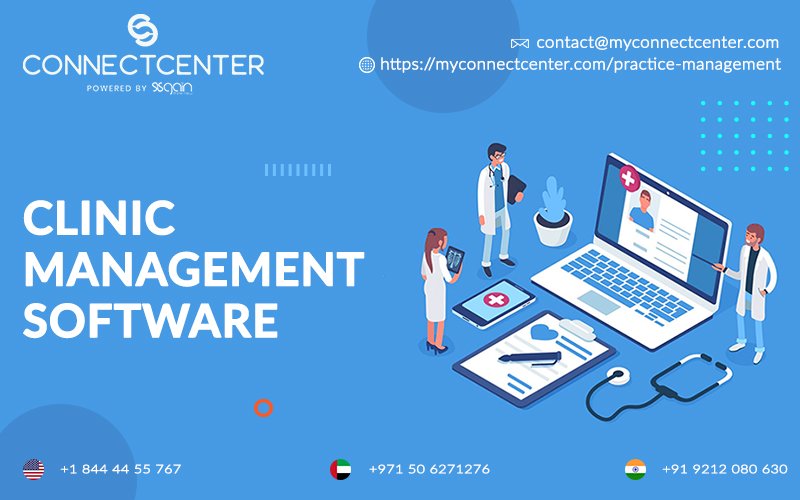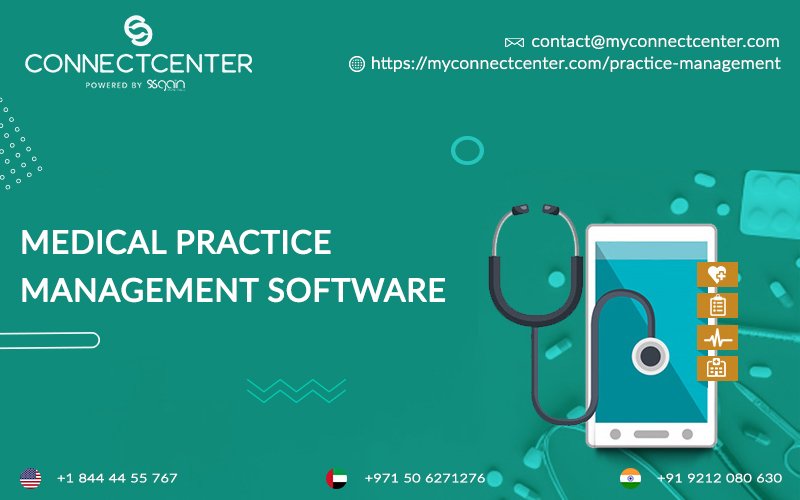A Simple Guide to Clinic management software

Patients often prefer clinics to hospitals for minor diseases, as well as for specific specializations. Patients have more access to clinics than they do to hospitals when seeking medical treatment. Most individuals would rather see a doctor at their clinic than waste time and money waiting at a hospital for a visit with a general physician, a dentist, or an ophthalmologist.
Clinics play an essential role in delivering health care in rural locations when access to a hospital is complicated. Clinics or healthcare facilities are crucial elements of our Practice management system. They give first assistance and routine checkups for people who would otherwise be without healthcare.
What are the Features of Clinic Management Software?
1- Electronic Health Records
As we all know, paper deteriorates over time, and manual records are no exception. It is critical to maintaining a patient's medical history to identify their problems correctly and quickly in the healthcare industry. The most crucial factor is time. Consider how much time and energy it would take to search through thousands of files for a single record. Electronic health records are a vital component of clinic management software that helps stop all of these behaviors. The patient records are preserved in a digital format that is kept on the servers indefinitely. It assists a doctor in retrieving precise and readable records of every treatment conducted, even when they have a hectic schedule.
2- Appointment Management System
Booking and scheduling appointments are the two most frequent issues, clinics confront nowadays. Due to the increased volume of patients, most clinics need patients to wait long to see a doctor. Most clinics use a token-based or queue-based approach. However, this can be challenging at times. Also, providing precise timetables for walk-in patients is difficult since the staff is unsure of the timings of the appointments already waiting in the area.
3- Dedicated App
As we all know, the cell phone is the most versatile and convenient device we have seen so far. The clinic can benefit from an android or iOS app linked with the clinic management software by allowing patients to make appointments online. Patients who cannot come to the clinic several times to schedule an appointment will find online appointment booking to be a lifesaver. Patients may book online appointments using mobile applications at any time, including on holidays. The practice management system is helpful, and physicians may use it to double-check and confirm their appointment schedule. The clinic management software created the clinic administration system to make a clinic more user-friendly.
4- Billing and Accounting Software
Most clinics make the error of utilizing billing software only for billing, which adds to the burden insignificantly. It necessitates the manual re-entry of several operations for billing purposes. The clinic management software, which is integrated with the billing system, follows a patient's whole treatment and therefore aids in the creation of financial records in one step, lowering workloads. The clinic's entire economic history, including expenditures and returns, can be readily tracked with a comprehensive system.
5- Manage Multiple Locations
The data from each clinic is shared and can be accessed from a single system, allowing all employees to access it. To protect privacy, you may also create user-specific privileges. Using your smartphone, you may easily manage all of your clinics. It's a win-win situation for both you and your consumer. If your patient visits another branch, he won't have to provide his information again. Individual clinic MIS reports may provide you with detailed information on how your clinics operate. You may retain a bird's-eye perspective of your company information with the contemporary dashboard.

What are the benefits of a Clinic Management System?
1- The practice Management System makes it simple to obtain patient information to create various records, such as classifications based on demographics, gender, age, and other factors. It is beneficial at the ambulatory level, allowing for better continuity of treatment. Remote access to such data is made easier with Internet-based access.
2- It assists medical clinic authorities in creating comprehensive health care plans by serving as a decision support system.
3- It reflects an improved drug usage monitoring system, including its effectiveness. It relegates adverse drug interaction to the background and gives a push to appropriate pharmaceutical utilization.
4- It improves information integrity by reducing transcribing mistakes and information entry duplication.
5- Clinic Management software is simple to use and avoids handwritten mistakes.
6- The most up-to-date technology ensures optimal speed when retrieving data from hosted or cloud servers.
7- It brings all data together on a single platform, allowing the Business Intelligence Module to give valuable insights into clinic operations and patient care quality.
Comments
